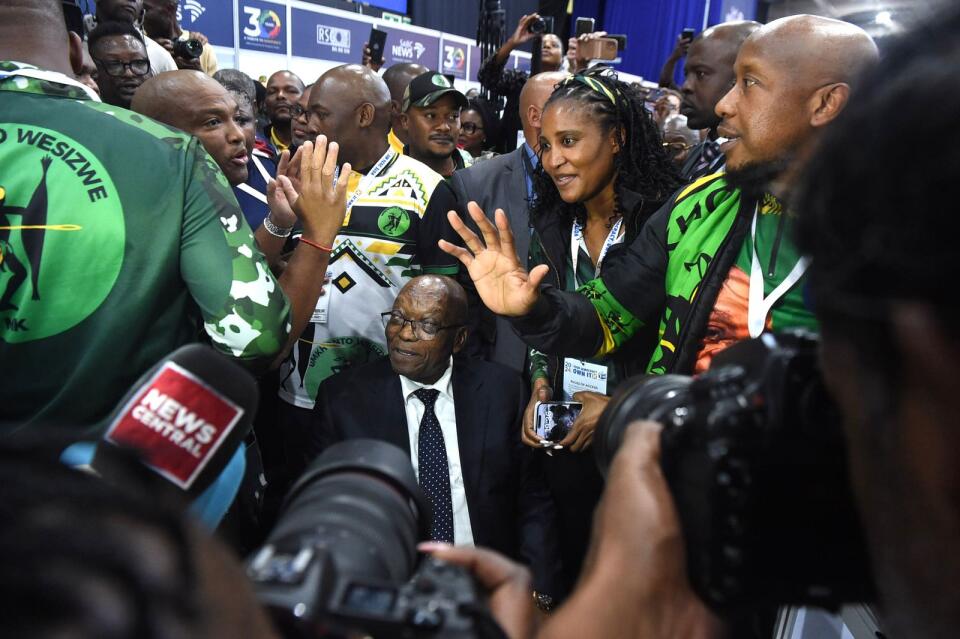Political analysts have raised alarms about the rising influence of the uMkhonto weSizwe Party (MK Party), a political movement led by former President Jacob Zuma, which has rapidly carved out a significant space in South Africa’s political landscape. Following the announcement that former Springbok coach Peter de Villiers, along with ex-GOOD Party member, had joined the MK Party, analysts have been quick to assess the implications of this development.
Political analyst Ntsikelelo Breakfast pointed out that the MK Party’s meteoric rise—becoming the third-largest political party in South Africa after the 2024 elections—has shaken up the political order. He believes the party’s growing attraction of prominent figures could further destabilize the status quo. “The MK Party has been a disruptor in the body of politics,” Breakfast said. “They are the biggest winners of the recent electoral outcomes. The EFF would have taken many of the votes that went to the MK Party, so they have managed to outmanoeuvre them.”
In Breakfast’s view, the MK Party is now presenting a serious challenge to the African National Congress (ANC). With widespread dissatisfaction over the ANC’s leadership, particularly its rhetoric and failure to deliver on promises, the MK Party’s appeal has intensified. “It is posing a serious threat to the ANC. The MK Party will continue to be a nightmare for them, especially with the party’s style of offering lots of talk but little action,” he added.
However, Breakfast also acknowledged that the MK Party’s internal dynamics might become an obstacle to its future success. Reports of leadership squabbles within the party have raised concerns about its stability. For Breakfast, these tensions could be resolved through a conference that could help consolidate leadership. “It’s normal for problems to arise within any political entity, but the MK Party needs to act quickly and hold a conference to resolve the issues. Leadership must be established through democratic means, and the sooner this happens, the better for the party.”
Despite these challenges, Breakfast believes that the MK Party has a bright future ahead. He also pointed out that the EFF’s frustration with the MK Party’s vote share is already apparent, adding further pressure. The EFF has criticized the MK Party for siphoning votes that would have traditionally gone to them, which may prompt the EFF to take countermeasures.
On the other hand, senior research fellow Thembisa Fakude of Africa Asia Dialogues expressed a more skeptical view of the MK Party’s long-term viability. Fakude argued that while the party has gained momentum, its populist approach and lack of institutional structure could lead to its downfall once Zuma steps aside. “They’ve missed a lot of crucial steps,” Fakude stated, referencing the MK Party’s lack of a formal constitution, despite claims to the contrary. “There have been anomalies surrounding members making payments into Zuma’s personal bank accounts, and some strong personalities within the party will likely begin to raise questions about that.”
Fakude also highlighted the potential for internal conflict within the MK Party, pointing to the significant influence of Zuma’s inner circle, which is a source of concern. “There are too many Zumas in the party, and this could create further tensions. The party is ripe for conflict unless these issues are addressed,” he warned.
As the MK Party continues to disrupt the political playing field, analysts are divided over its future. While some view it as a rising power challenging the dominance of traditional parties, others foresee internal struggles that could derail its momentum. Only time will tell if Zuma’s political legacy will leave behind a lasting institution or if it will collapse under the weight of its own contradictions.
